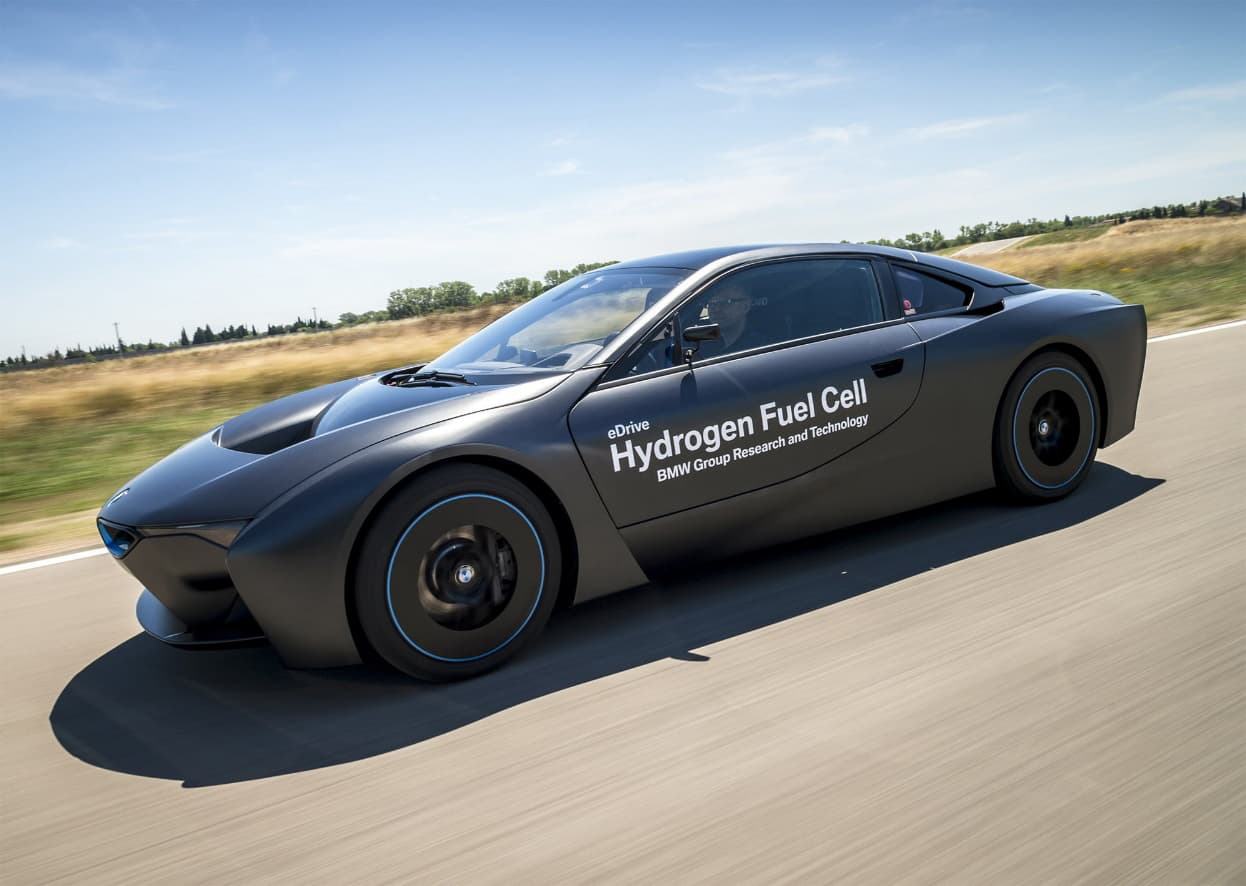Electric Vehicles vs Hydrogen Vehicles – Which Makes The Most Sense?

Introducing Hydrogen Vehicles
Hydrogen Vehicles have an electric chemical engine that converts hydrogen energy into electricity, acting as fuel for the hydrogen vehicle. The Hydrogen vehicle alongside full battery powered electric vehicles (BEV) are the latest innovations in the sustainable vehicle market.
1. Charging efficiency
The electric fuel supply chain is fast and efficient, as your EV charger can connect to renewable forms of energy and is then sent to charge the battery of your electric vehicle. Hydrogen is still an upgrade from petrol powered vehicles but still falls short to electric. The photo below highlights the vast amount of energy that the hydrogen vehicle loses when charging through its long process. This is due to the energy being further broken down, and the transfer of energy into the fuel.
2. Cost of energy
The price of Hydrogen in Australia Is significantly more expensive when compared to electricity. This is due to the complexity of creating hydrogen and the lack of infrastructure available in Australia. The NSW government highlighted in stage one of their Net Zero Plan, that they were going to add incentives and develop infrastructure to make hydrogen competitive with natural gas as seen below. Whilst this is good news to see for the Hydrogen world, it is 10 years behind the quickly developing electric vehicle (EV) market. As stated in the Net Zero plan, the average EV driver saves $1000 a year in fuel costs and $300 in maintenance costs from going electric. This is a big victory for electric vehicles, as the ongoing costs make it a great option for the everyday driver.
Hydrogen production projections
3. Vehicle weight
There is a preconceived notion that hydrogen vehicles are significantly lighter than BEVS when this is not the case. The battery motor is a significant weight factor in your vehicle, both BEV and Hydrogen vehicles have large battery pack/ electric motors making their weight quite similar. The electric vehicle uses a large battery pack to power the vehicle whilst hydrogen vehicles have fuel cells and a hydrogen tank, the battery pack weighs more than the fuel cell system which would make the weight difference between the two minuscule.
Electric vehicle diagram
Hydrogen Vehicle Diagram
4. Refuelling process
On average, hydrogen has a longer range than an electric vehicle, but does not have the refuelling infrastructure to make it an efficient process. Electric vehicles have thousands of public chargers available in Australia, including a vast network of DC chargers scattered across the country. Whilst AC car chargers are great for the residential home, they do not offer the speeds needed for quicker and longer journeys. This is where DC charging comes in, as it allows the user to fully recharge their vehicle in 15 minutes to an hour. This is revolutionary for the trucking industry, as this allows a truck driver to fully recharge their vehicle during their work break. Innovative technology allows for the collection of data that can be used to claim tax incentives, understand charging habits, and monitor energy usage. Hydrogen does not have these facilities available in the current market, as the first public hydrogen charger was released in 2019.
5. Maintenance
Hydrogen fuel cells and bowsers require maintenance from a specialist and can be expensive to maintain. This is due to the complexity of hydrogen engines and the lack of supply of hydrogen vehicles in the market. The Electric vehicle system is far less complex and has more vehicles on the market, allowing for maintenance to be easier and for the average Australian to save $300 in servicing fees each year. The electricity charger itself can be installed by an electrician, and the vehicle can be maintained by your average mechanic.
Click for more information on installing EV Charging Stations
6. Price of vehicle
There is no denying that the Current electric hydrogen vehicles have a steeper initial cost when compared to an internal combustion engine. The Hydrogen vehicle is projected to be significantly more expensive than the electric car due to the development of the electric vehicle market. Toyota and Hyundai are the main players in the hydrogen sector and are yet to release their vehicles in Australia.
So in conclusion, both vehicles are very similar, yet very different. The electric vehicle market is more developed and currently has the infrastructure behind it for fleet usage. On the other hand Hydrogen is still in the testing phase, and whilst areas of it sound great in theory, more development is needed in this sector for it to be deemed a viable option.
Winner: Electric Vehicles


